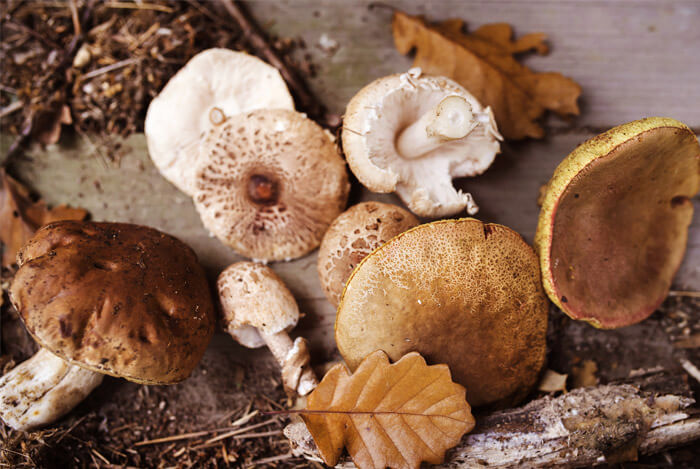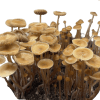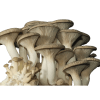Superfoods have been treasured across cultures for centuries, celebrated for their dense nutrients and potential health benefits. While berries and leafy greens often steal the spotlight, mushrooms like reishi, lion’s mane, and cordyceps have also played a significant role in wellness traditions worldwide. With a rise in scientific studies confirming their benefits, these functional mushrooms are becoming more popular alongside other superfoods such as turmeric and leafy greens. Here’s a comprehensive look at how these natural powerhouses support health and wellness.
The Unique Benefits of Functional Mushrooms
Functional mushrooms offer a range of health benefits, from boosting immunity to supporting mental clarity and physical stamina. Their unique bioactive compounds—such as beta-glucans and polysaccharides—play specific roles in body function, especially in immune support and cellular health. Below, we explore the properties and benefits of popular mushrooms.
Reishi: The Mushroom of Immortality
Reishi mushrooms, scientifically known as Ganoderma lucidum, are sometimes called “the mushroom of immortality” due to their historical use in traditional Chinese medicine. They’re rich in polysaccharides and triterpenoids, compounds with anti-inflammatory and immune-boosting properties. Studies have shown that reishi mushrooms can help regulate the immune system, enhancing the body’s ability to fend off infections while also potentially reducing inflammation
Reishi’s adaptogenic properties help reduce stress by regulating cortisol, the body’s primary stress hormone. Reishi can also improve sleep quality, which further supports stress management and overall wellness. The calming effect of reishi tea has made it popular as an evening beverage, helping individuals unwind and promoting better rest.
Cordyceps: The Natural Energizer
Cordyceps, an exotic fungus that grows on caterpillars in the wild, has been used for centuries in Tibetan and Chinese medicine as a natural energy booster. Modern research reveals that cordyceps increase the production of ATP (adenosine triphosphate), a molecule that stores and transfers energy in cells, improving endurance and stamina. For athletes, cordyceps offers benefits such as enhanced oxygen utilization and improved blood flow, which contribute to overall endurance and performance
This mushroom’s energy-boosting potential makes it ideal for use in pre-workout routines, and it can be enjoyed in powder form, mixed with water, or blended into smoothies. Cordyceps also support respiratory health by enhancing lung capacity and oxygen intake, which can be beneficial for both athletic performance and overall vitality.
Lion’s Mane: The Brain Booster
Lion’s mane is renowned for its neuroprotective properties and potential cognitive benefits. This mushroom is one of the few natural sources that can stimulate the production of nerve growth factor (NGF), a protein essential for brain function and the maintenance of neurons. Research indicates that lion’s mane can improve memory, focus, and cognitive function, making it a valuable addition to routines focused on mental clarity and productivity
Lion’s mane also contains antioxidants and anti-inflammatory compounds, which may alleviate symptoms of anxiety and depression. Whether enjoyed as a powder, capsule, or tea, lion’s mane is an increasingly popular choice for those seeking natural support for mental health and cognitive enhancement.
Chaga: The Antioxidant Powerhouse
Chaga is a dark, dense mushroom that grows on birch trees, primarily in cold climates like Russia and Canada. Known for its antioxidant strength, chaga contains high levels of polyphenols, melanin, and superoxide dismutase, which help reduce oxidative stress. Oxidative stress, a process linked to aging and chronic diseases, occurs when the body has an imbalance of free radicals and antioxidants.
Traditionally used in Russia and Northern Europe, chaga tea is consumed to support immune health and reduce inflammation. Chaga is also beneficial for skin health due to its high antioxidant content, helping to prevent wrinkles and support a healthy complexion. For a nutrient boost, adding chaga powder to a morning smoothie or latte is an easy way to enjoy its benefits
Other Nutrient-Dense Superfoods to Complement Mushrooms
While functional mushrooms are indeed powerful, they aren’t the only superfoods worth considering. Foods like berries, turmeric, and leafy greens also provide unique health benefits, especially when combined with mushrooms for a balanced wellness routine.
Berries: Antioxidant-Rich Fruits
Berries, particularly blueberries, raspberries, and strawberries, are loaded with antioxidants, especially anthocyanins and vitamin C. These compounds help combat oxidative stress, reducing the risk of chronic illnesses and supporting overall health. Blueberries, for instance, are known for their positive effects on brain health, and some studies even suggest they may help slow cognitive decline due to aging.
Berries are also high in fiber, which is essential for digestive and cardiovascular health. With their natural sweetness and bright colors, berries are an easy addition to smoothies, oatmeal, or salads, providing both flavor and health benefits.
Turmeric: The Golden Spice
Turmeric, a vibrant yellow-orange spice, is well-known for its powerful anti-inflammatory properties. Curcumin, the active compound in turmeric, is widely studied for its potential to reduce inflammation and support joint health. Research suggests that curcumin may also improve mood and cognitive health, with some studies indicating its effects in increasing levels of brain-derived neurotrophic factor (BDNF), a protein involved in brain plasticity.
For best absorption, turmeric is often paired with black pepper, which contains piperine, a compound that enhances curcumin’s bioavailability. Many people enjoy turmeric in golden milk lattes, a warm drink made with milk, turmeric, ginger, and black pepper.
Leafy Greens: Nutritional Powerhouses
Leafy greens, like spinach, kale, and arugula, are packed with vitamins and minerals, including vitamins A, C, and K, as well as folate, iron, and calcium. Their high nitrate content supports cardiovascular health, while their fiber content aids in digestion. Dark, leafy greens also contain antioxidants that help fight inflammation and support cellular health.
Incorporating leafy greens into daily meals is simple, and they can be added to smoothies, salads, or even pasta dishes for a nutritional boost. With their versatility and nutrient density, leafy greens are a foundational superfood that supports long-term health.
How to Incorporate Superfoods into Your Daily Routine
With so many superfoods available, finding ways to include them in daily life can be overwhelming. Here are some practical tips for adding these foods to your diet:
- Start Your Day with a Superfood Smoothie: Adding a handful of berries, a scoop of lion’s mane or cordyceps powder, and a handful of leafy greens to a smoothie can create a nutrient-packed breakfast or snack. You can also add chia seeds or a bit of turmeric for extra benefits.
- Enjoy Mushroom-Based Beverages: For those who prefer coffee or tea, try incorporating a mushroom blend. Many companies now offer coffee or tea enhanced with functional mushrooms like reishi and chaga. This can be a calming, immune-boosting alternative to regular coffee, especially when combined with adaptogenic mushrooms.
- Cook with Leafy Greens and Turmeric: Adding leafy greens to meals is easy—try mixing them into pasta, soups, or stir-fries. Turmeric can be used in savory dishes or combined with black pepper for golden milk, a soothing drink ideal for inflammation support.
- Experiment with Mushroom Supplements: If you’re not a fan of the taste of mushrooms, consider supplement capsules or powders. Many high-quality brands offer mushroom extracts that retain the benefits of the fungi without needing to cook or prepare them.
The Science Behind Superfoods
Modern science is increasingly confirming what traditional wisdom has known for centuries—superfoods offer a wide range of health benefits. Here’s a look at some of the research supporting these nutrient-dense foods:
- Immune Support: Beta-glucans found in mushrooms like reishi and turkey tail have been studied for their immune-modulating effects, which can help regulate the immune response and support the body’s ability to fight off infections
- Antioxidant Power: Many of these superfoods, including chaga and berries, contain powerful antioxidants that help reduce oxidative stress. This reduction in oxidative stress can delay aging processes, reduce the risk of chronic diseases, and improve skin health.
- Cognitive Health: Lion’s mane’s unique ability to promote NGF production is being studied for its potential to support cognitive function and reduce symptoms of anxiety and depression. Similarly, berries contain polyphenols that protect brain cells from damage and have been linked to better memory retention and learning.
- Inflammation and Joint Health: Curcumin in turmeric has shown promising results in reducing inflammation and supporting joint health. Regular consumption of turmeric may help manage inflammatory conditions such as arthritis and promote recovery from exercise-related soreness
Embracing superfoods like mushrooms, berries, turmeric, and leafy greens doesn’t have to be complicated. Whether you’re blending a smoothie, brewing a mushroom tea, or adding turmeric to a latte, each small step brings you closer to a balanced, nutrient-rich diet. By combining these powerful foods, you’re supporting your immune system, boosting cognitive health, and enhancing energy—naturally and sustainably.






